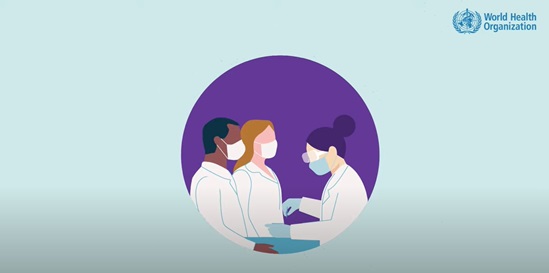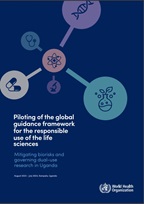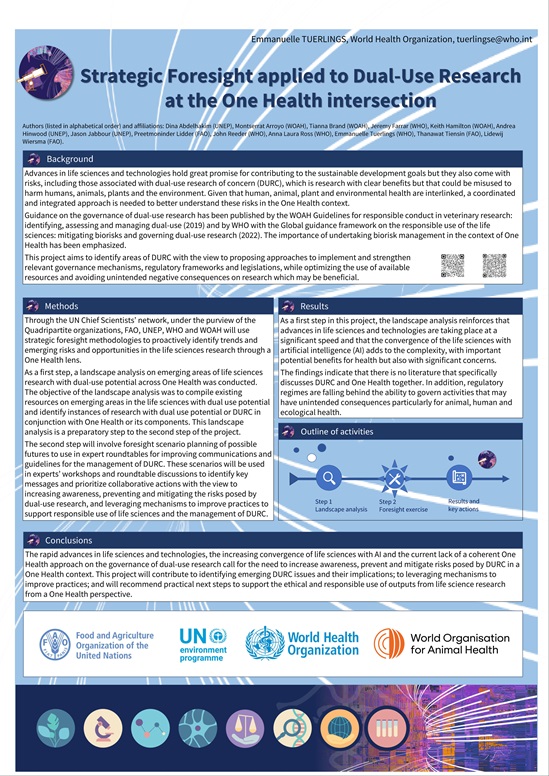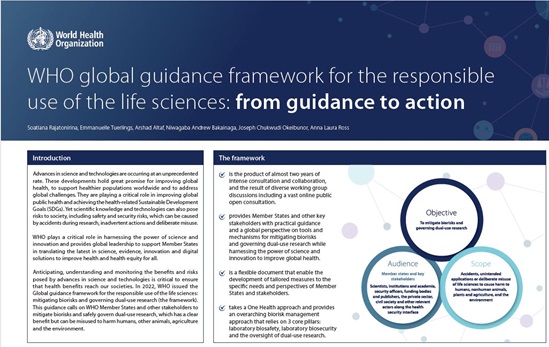Ensuring responsible use of life sciences research
Advances in life sciences research and technologies are transforming global health and have the potential to provide new and improved ways to support healthier populations worldwide. However, research and emerging technologies in fields such as engineering and information technology, can pose risks to public health if misused, either inadvertently or deliberately, to cause harm. Research that raises such concerns has also been characterized as dual-use research and dual-use research of concern.
The risks posed by dual-use research and technologies can be addressed through individual as well as collective, collaborative, and conscious efforts.
Using its role as a leader in public health globally, WHO works with Member States and partners to increase awareness, prevent and mitigate the risks posed by dual-use research and establish and/or leverage on existing mechanisms to adopt changes in practice to support the responsible use of life sciences.
WHO will translate knowledge and expertise into concrete tools, resources and frameworks to support WHO Member States and interested actors to adopt changes in practices; to increase collaboration and engagement of a broad range of stakeholders on dual-use research; and to improve evidenced-based decision-making in the life science research landscape as it relates to the risks posed by dual-use research.



/research-for-health-(rfh)/emerging-tech-research-prioritisation-support-(eps)/dual-use-research-course-banner.jpg?sfvrsn=52ec0894_3)



